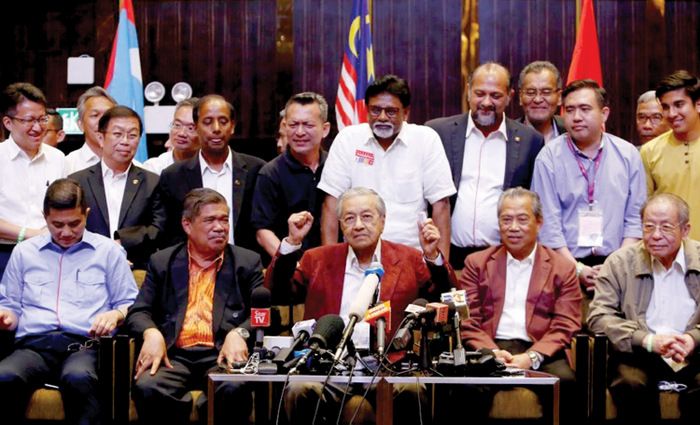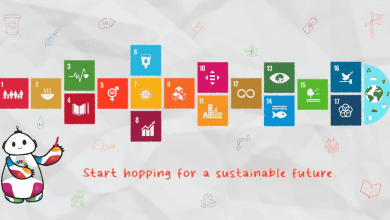Editorial: A Worrying Trend


By Fathol Zaman Bukhari
The propensity to support and tolerate terrorist activities by Malay-Muslim extremists is worrying indeed. Coming in the wake of the Islamic State-inspired bombings in Sri Lanka on Easter Sunday, April 21, it does not augur well for the country.
This is despite the outcome of a recent survey stating that Muslims in Malaysia have a low tendency for violence in furthering their religious belief.
Academician Faisal S Hazis who did a joint survey on tolerance and susceptibility to extremism in Southeast Asia said 28 per cent of Malaysian Muslims exhibited “violence-receptive” tendencies, meaning that they did not reject violence.
Respondents, said Hazis, justified the use of violence in the name of Islam. However, only two per cent of the 823 respondents polled said they would participate in violent extremism.
The study by the Merdeka Centre was conducted across four Southeast Asian countries namely, Malaysia, Indonesia, Thailand and the Philippines. It included both Muslim and non-Muslim respondents.
The survey covered two areas of extremism: violent extremism and “self-sacrificial tendencies” or the willingness to sacrifice their lives to defend Islam. Malaysia and Thailand recorded the highest levels of self-sacrificial tendencies.
Merdeka Centre too found that support for global and regional terror groups was present in all four countries surveyed, the highest in Malaysia at 18.1 per cent. Support for the Islamic State was also highest in Malaysia. This is worrying indeed.
Professor Ahmad Fauzi Abdul Hamid of Universiti Sains Malaysia said the research provided compelling evidence that the Southeast Asian region, including Malaysia, demonstrated “increasing degrees of extremism” although the levels were still considered moderate. “Extremist-like behaviour in Malaysia has been creeping into the state. Part of it has encroached into the government and universities.”
The research too found that those who condone violent extremism normally have little money. They believed that suicide bombing is encouraged in Islam, and felt that there was discrimination against Islam.
The research recommended an audit to determine and refine religious narratives in education and sermons to see if they breach current religious dictates.
Using former militants who had been de-radicalised and have integrated into society to educate the public and raise awareness was also an effective way to counter extremism, the research recommended.
At the tail end of the Malayan Emergency Surrendered Enemy Personnel (SEP) were extensively used to educate people on the evils of communist terrorism. Perhaps this is a way out. The other is the introduction of a multi-faith education to reduce the levels of ignorance and intolerance among Muslims towards non-Muslims.
ONE YEAR ON
On May 9 last year, Malaysians celebrated the fall of Barisan Nasional (BN) with much gusto and zeal. I was no exception. In spite of my bad leg, I made it a point to stand in line for over two hours to cast my vote at the polling centre in Bercham. Many in Ipoh did so. Our singular objective of making a change drove us on. It was a crusade, of sorts.
Many changed their social media profile pictures to Malaysian flags with all sorts of “born again” slogans. That night, Malaysians went to bed happy in the thought that they had been of service to the nation.
Cynics were silenced, and even those who were adamant that they cross nothing other than the dacing symbol on their ballot paper, joined in the celebration which many had termed as a “peaceful transition”.
Malaysians voted in Pakatan Harapan (PH) for various reasons. Some were convinced that it would herald a new era of politics. Others, especially those in the urban area, were expecting a change in the nation’s social, economic and even religious philosophy. And there were those who just wanted to put to pasture a “61-year-old monolith” which had outlived its usefulness.
In the days leading to the first anniversary of the new government, ministers were stepping on one another to show their glossy report cards detailing their achievements over the past year.
However, ministers in charge of the more crucial portfolios such as finance and economic affairs found it a hassle to answer questions, so they hid in their Putrajaya offices. Their action left critical but pertinent questions unanswered.
One year is not long in politics, especially for a government that has taken upon itself to clear the mess caused by decades of mismanagement by prime ministers, including one destructive kleptocrat and his meddling wife.
Most of the negativity that PH received, in regard to its performance, has to do with its insistence to change six decades of social, economic, political and judicial mess.
It would have been better if they had told the rakyat that their objective was to bring down BN and teach its leaders, and their wives, the meaning of people power. It was not to undo the social and cultural engineering that had unwittingly shaped and defined the nation.
BN’s fall marks the destruction of a major psychological barrier among Malaysian voters, particularly when seen in the context of UMNO’s hold on the Malays.
The inability of many Malays to rise above the destructive rhetoric of old Malaysia’s bumiputra politicians is the saddest thing since GE14. This is the end result of decades of brainwashing and scaremongering during the tenure of the BN-led government. Today, a hapless Malay community is the biggest stumbling block to Malaysia Baru, as the country tries to forge ahead.
MCA and MIC are also guilty of duping their supporters. But the cumulative effect of their actions on Chinese and Indians is nothing compared to the devastation Malays have suffered from the aftereffects of 3 Rs (Race, Religion and Royalty). UMNO has perfected this mantra into an art to ensure continued support from the “economically-disadvantaged Malays”.
One year since rebirth Pakatan Harapan’s promises remain a pipe-dream. The real enemies of Malaysia’s ethnic majority are not DAP and Lim Guan Eng but Umno and PAS. Both parties have been lying through their teeth. Because lying is their only means of survival.


